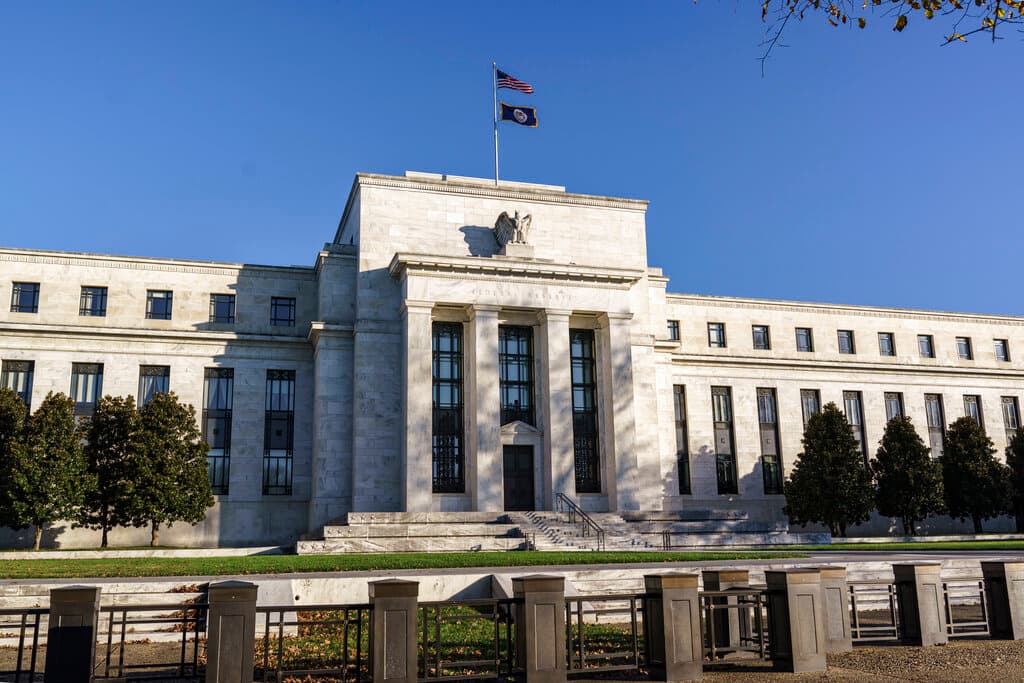Time for a Reckoning Is at Hand for the Federal Reserve
Americans are starting to focus on whether the efforts of the Fed to manage the economy are doing more harm than good.

The decision yesterday of the Federal Reserve to hike its key rate by another quarter percentage point was no doubt the result of careful deliberation among its monetary policy committee members. Polling, though, suggests that Americans may be starting to focus on a much larger issue: Are the Fed’s efforts to manage the economy doing more harm than good?
A survey of American adults conducted between March 13 and March 19 by the Pew Research Center sought opinions on 16 federal agencies ranging from the National Park Service to the Internal Revenue Service. The survey disclosed mixed views of the Federal Reserve — with 43 percent having a favorable opinion, 37 percent unfavorable, and 20 percent unsure. Only the IRS ranked lower in popularity.
Certainly, our central bank’s performance over these past 15 years deserves to be questioned. Starting with the global financial meltdown in 2008, followed by more than a decade of near-zero interest rates that distorted financial asset valuations, and culminating with the highest inflation in 40 years — the Fed has engineered booms and busts without acknowledging its culpability.
“Whatever the source of the housing bubble,” a former Fed chairman, Ben Bernanke, recounts in his 2022 book, “once it took shape monetary policymakers faced a difficult call.”
The irony is rich. No other government agency has been granted more power to calibrate the supply of money and credit to the needs of the real economy. Yet the Fed responds to its failures by accumulating even more power.
In September 2008, the Fed held about $920 billion in assets on its balance sheet. Today it holds over $8.6 trillion in assets, including $5.2 trillion in Treasury debt and $2.6 trillion in agency mortgage-backed securities. The increase reflects large-scale Fed purchases of financial assets aimed at pushing down interest rates to stimulate economic activity. The Fed pays for its purchases by crediting the cash reserve balance accounts of sellers, expanding the monetary base with a keystroke.
If the Fed’s record on monetary policy has proved less than stellar, its role as banking regulator has taken an even more severe beating in recent weeks. Despite the fact that the Fed’s own asset portfolio incurred $1.1 trillion in unrealized losses for 2022 due to rapidly increasing interest rates — roughly a 13 percent decline in value of the portfolio — it appears that the impact of this critical development for the banking industry was not anticipated.
While annual stress tests administered by Fed examiners are used to set capital requirements for large banks by ensuring they can function even in a severe recession, the exercises are based on hypothetical future scenarios characterized by high unemployment, low inflation, and low interest rates — hardly the situation facing banks today.
Emulating the Fed’s practice of reducing its balance sheet through runoff — holding securities to maturity rather than selling them at a loss — many banks responded to the sudden surge in interest rates since last March by designating low-yielding Treasury bonds and mortgage-backed securities as “held-to-maturity” assets, allowing firms to exclude unrealized losses from reducing their capital. In the wake of the Silicon Valley Bank collapse, increasing calls for greater transparency in financial accounting are being heard.
Some of those calls are directed at the Fed itself. Unlike banks, the Fed has developed specialized accounting principles and practices that differ from America’s generally accepted accounting principles. As the Fed explains on its website: “Accounting principles for entities with the unique powers and responsibilities of the nation’s central bank have not been formulated by accounting standard-setting bodies.”
Yet with the reversal in the Fed’s profit-and-loss condition since September — it formerly remitted significant sums of cash back to Treasury every week but now is running cash-operating losses — members of Congress are applying a higher level of scrutiny.
Legislation introduced by Senator Hagerty and Congressman French Hill seeks to eliminate “accounting gimmicks and backdoor transfers” that erode public trust in the nation’s central bank. The bill specifically targets the Fed’s funding of the Consumer Financial Protection Bureau out of its own earnings as an improper mechanism for avoiding the congressional appropriations process.
Meanwhile, as the Fed’s losses continue to accumulate — they are recorded as a “deferred asset” on its balance sheet — the Fed’s own explanation for its status as an independent agency within the federal government appears to be related to its ability to cover its own expenses. According to its website: “The Federal Reserve does not receive funding through the congressional budgetary process.”
Accounting discrepancies and transparency issues may prove to be the chink in the armor that has largely prevented Congress from criticizing our nation’s central bank for policies and practices that have not served to improve economic performance, ensure financial stability, or deliver sound money.
“Having little to no accountability at the Fed is not acceptable and has proven to have disastrous consequences,” Senator Scott of Florida stated in a recent Market Watch opinion piece. “If we do nothing, we risk repeating 2008, when the federal government failed to do its job, no one at the Fed was held accountable, and no changes were made there.”
True accountability since 2008 would require Fed officials to explain why savers were deprived of decent returns on their savings for years, why wealth inequality has widened so dramatically, why the dollar’s purchasing power has declined so precipitously, and why the global standing of American currency is under threat.
“Given that the Federal Reserve often causes the very thing it was designed to prevent, perhaps it’s time to revisit its structure and role,” Senator Lee of Utah suggested on his Twitter account.
Indeed. It’s time for a Fed reckoning.

